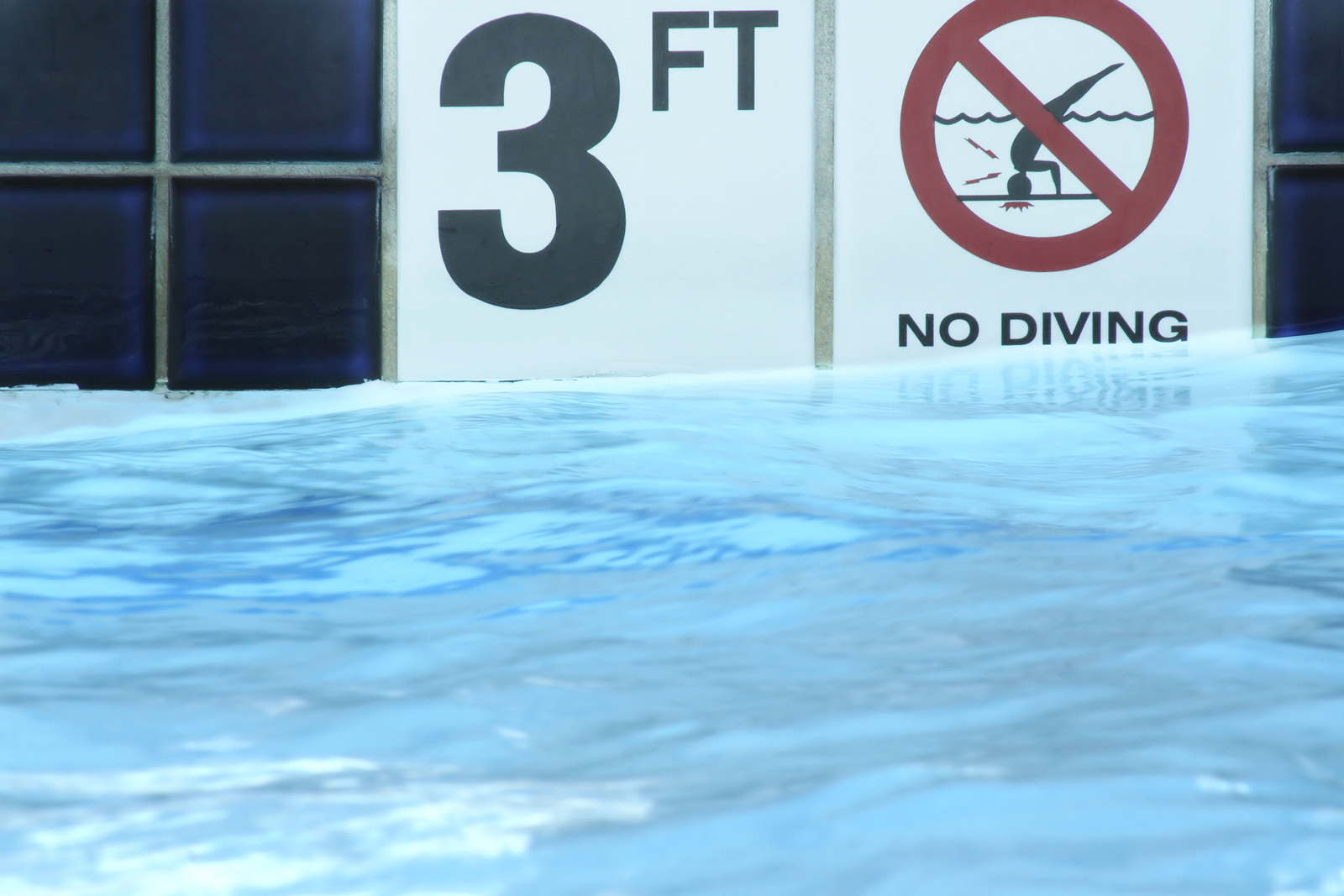Many cities own and operate municipal aquatic centers that provide an important recreational service to the community. Like any other service, city officials need to ensure that the aquatic center is operating efficiently and meeting the demands of its users.
Pool Managers and Certified Pool Operators
A successful pool season often depends on who is running the aquatic center in your community. A pool manager needs to be skilled at customer service and have an understanding of labor laws, financial management, pool-related chemicals, rules regarding workplace safety and first aid. It is also preferred (but not required) that pool managers have a background in lifeguarding.
The Iowa Department of Public Health (IDPH) requires a trained certified pool operator for all public swimming pools. For many communities the pool manager also serves as the certified operator. The value of certification is the ability to accurately calculate when and how to adjust pool chemistry. Certification provides employees with techniques that are designed to protect both swimmers and the city’s investment in the facility.
Currently, the state recognizes several training programs to satisfy the requirement of a certified operator. The National Swimming Pool Foundation’s Certified Pool Operator is the most accessible of the recognized certification programs due to its affiliation with the Iowa Park and Recreation Association (IPRA). The certification is valid for five years. In addition, all certified operators must receive 10 hours of continuing education during the five years between certifications.
Lifeguards
Lifeguards need to receive American Red Cross Lifeguard Training or an equivalent training approved by IDPH. Minimum lifeguard staffing is determined by regulations issued by IDPH and are based on the features of the pool as well as the number of swimmers. For open recreation swimming, there shall be at least one lifeguard guarding the pool at all times for up to 30 swimmers in the water and two lifeguards for 30-125 swimmers (with one guarding the pool at all times). An additional lifeguard shall be provided for each additional 125 swimmers in the water or fraction thereof. It is also the responsibility of the management of each facility to evaluate the facility configuration and features of the facility, including water slides, play features and number of swimmers, to determine the facility-specific requirements for additional lifeguards.
Inspections
IDPH has established minimum regulations for the design, installation, operation and maintenance of pool facilities in order to protect the public from injury, minimize the potential for disease transmission and provide a safe and healthy aquatic recreational environment. Inspections are completed at the time of construction and periodically thereafter for the purpose of identifying obvious deviations from the rules that present health or safety hazards, so they can be corrected by the city. In addition, copies of certified operator certificates and copies of lifeguard, first-aid, basic water rescue and CPR certificates for the facility staff are to be kept at the facility and available to inspectors. Water quality reports also need to be available onsite and readily available for inspection.
Facility Accessibility
Title II of the Americans with Disability Act (ADA) requires newly constructed public pool and aquatic facilities to be fully accessible to people with disabilities, applying the ADA Standards for Accessible Design. The requirement for accessible entry and exit to existing swimming pools built before March 15, 2012, went into effect on January 31, 2013. Cities should consult with the city attorney regarding any accessibility issue. Please visit our Swimming Pool Accessibility page for additional information.
Personnel Laws That Impact Aquatic Center Management
The following is a brief overview of employment laws to be aware of when hiring staff:
Job Posting Requirement
The first step for any job opening is to post a public notice of the application deadline at least 10 days prior to the deadline. This is to satisfy the requirements of Code of Iowa Chapter 35C covering Veterans’ Preference. While there is no legal requirement to advertise open city positions in a local newspaper or elsewhere, this can be helpful as a way to inform potential candidates about job openings.
Discrimination
Anyone involved in the hiring process should also be informed on ways to avoid discrimination in the hiring process or within the workplace. Iowa Workforce Development offers its Successful Interviewing Guide that can serve as an excellent summary of best practices regarding interviews and ways to avoid workplace discrimination.
Child Labor
Cities should be aware of any restrictions on the hours an employee can work and the types of jobs that can be performed by any employee under the age of 18. Also note a few specific U.S. Department of Labor regulations specific to youth lifeguards, including a provision that does not allow anyone younger than 15 years of age to serve in such roles. Please visit our Youth, Seasonal and Part-Time Employees page for additional information.
IPERS
For many cities, much of the swimming pool staff is going to be considered seasonal and will most likely be categorized as part-time with limited or no benefits. Individuals hired to work less than six months or on an irregular, seasonal or on-call basis are generally excluded from coverage under the Iowa Public Employees’ Retirement System (IPERS). However, in some cases a temporary employee may become eligible for IPERS coverage if an “ongoing relationship” with an IPERS employer is established when wages paid are $1,000 or more for two consecutive quarters, or when employed for 1,040 hours or more in a calendar year.
Minimum Wage
The federal and Iowa minimum wage is set at $7.25 per hour. While special rules allow for payment of less than the minimum wage to an extremely small segment of employees, it is recommended that your city attorney review both federal and state minimum wage rules if you are paying any employee less than minimum wage.
Training
As with other city staff members, aquatic center employees should receive a variety of workplace training designed to effectively manage the risks associated with related facilities. While pool managers may be required to have more in-depth trainings on many of these subjects, all pool employees should have an understanding of the following items:
City’s Personnel Policies
Policies and expectations regarding work responsibilities, appearance, public interaction/customer service and any problem areas should be highlighted for all pool employees. Cities should also have employees acknowledge receipt of any personnel handbook or policy.
Workplace Safety
Policies should be adopted that address safety concerns to prevent incidents for employees and pool patrons with an overview of consequences for ignoring rules. Emergency Action Plan procedures should also be included, such as responses to inclement weather, workplace violence and other emergency threats and responses. Staff should also acknowledge receiving information about their role and that training occurred.
Workplace Harassment
Pool employees must be aware of the city’s policy regarding sexual harassment as well as other forms of harassment. Training should include how to identify and report harassment.
Basic First Aid
Policies should cover assessing and addressing the needs of those injured as well as identifying water or chemical-related illnesses.
Safety Data Sheets
All staff should also be able to locate Safety Data Sheets regarding chemicals used and be able to direct an inspector to their location.
Bloodborne Pathogens
As required by the Occupational Safety and Health Administration, city employees with “occupational exposure” need to be trained on how to prevent exposure to bloodborne pathogens.






